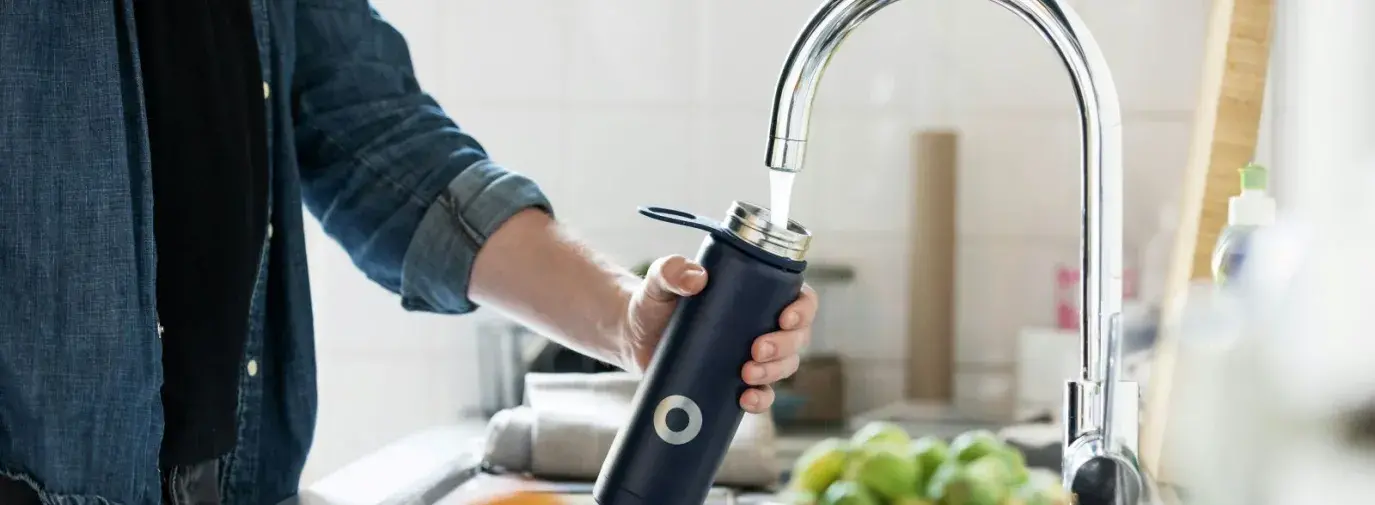
Plastic pollution is everywhere—in waterways and oceans, in food chains and the atmosphere, and even in our own bodies.
The Ocean Conservancy confirms that single-use plastic consumption is on the rise, growing at an estimated 2.7% per year, and the advocacy group Beyond Plastics says this rise is intentional. Fossil fuel companies are ramping up production of plastics, to counter wider use of renewable energy and electric vehicles. “Plastics is Plan B for the fossil fuel industry,” says Judith Enck, founder and president of Beyond Plastics.
If we don’t counter this push and reduce demand, the result would be nearly six billion metric tons of single-use plastic between now and 2050.
This enormous amount of trash is a huge problem for both people and planet. According to the Organisation for Economic Co-operation and Development (OECD), current trends indicate that by 2060, plastic leakage, one of the leading causes of water pollution, will double from 2019 and increase to 44 million tons.
Humans ingest plastic pollutants in the form of microplastics—tiny particles of plastic less than 5 millimeters in size—from contaminated seafood, tap and bottled water, salt, and even the air we breathe. And plastics production alone accounts for more than 3% of the world’s greenhouse gas (GHG) emissions (1.8 billion tons, and set to more than double by 2060).
What is more, recycling remains an imperfect solution for dealing with plastic waste—one that the plastics industry promotes, while knowing that many plastic products cannot (or will not) be recycled. Different municipalities have adopted various systems of recycling, making it complicated for the average person to effectively recycle their waste. Instead, most plastic ends up in landfills or in the ocean and takes years to degrade while leaking microplastics and toxins into our water and food.
Learning about your municipality’s recycling system is a good start, as is finding reuse options for items before they go into your recycling bin. Even better are options for avoiding plastic purchases altogether, and the following tips can help.
Laundry
Many conventional detergent products result in plastic waste. For example, conventional detergent containers are often made with plastic, while conventional dryer sheets are often made from non-recyclable polyester.
Laundry day, therefore, often involves using far too many non-biodegradable and non-compostable products.
Hill+House has everything you need, from detergent sheets packaged in paper boxes, both scented and unscented, and wool dryer balls. For a different style of detergent, check out Tangie's laundry soap bar concentrate, a block of all-natural detergent that dissolves in water in your own reusable container. Tangie also has a stain remover stick.
Washing clothes also comes with the unfortunate side effect of shedding microplastics. Washing synthetic clothes in home washing machines account for 35% of the global release of microplastics, according to the International Union of Conservation of Nature.
You can reduce these plastics by investing in clothes made of plastic-free fabrics, like organic cotton or linen, and by using products like the Cora Microfiber Laundry Catching Ball, which you can also find at Green Eco Dream, or the Lint LUV-R Filter at Environmental Enhancements. According to a 2019 study by the nonprofit Ocean Conservancy in Marine Pollution Bulletin, these items reduced an average of 26% and 87% of total microfibers, respectively, keeping fewer of these particles from entering wastewater.
Food Storage and Cleanup
In the kitchen, it’s easier than ever to avoid chemicals from plastic contaminating your food.
The chemicals included in many conventional kitchen products, like bisphenol A (BPA) and bisphenol S (BPS), can leach into food and ultimately our own bodies, when released by heat or even rough treatment from a sponge or dishwasher. When storing food, you can avoid plastic by investing in glass or bamboo containers. If you need to cover a bowl with no lid, or wrap leftover produce, consider plastic alternatives like beeswax wrap (found at Hill+House and other green retailers) or silicone and BPA-free resealable bags from EcoChoices, rather than plastic wrap.
For kitchen cleanup, basic sponges are often made with plastics (or at least come in plastic packaging) and conventional household cleaners are sold in plastic packaging.
Shop the sustainable retail stores at the Green Business Network directory to find plastic-free cleaning products, including biodegradable and compostable Swedish dish cloths, walnut scrubber sponges (reusable and washable, made of plant-based cellulose, recycled fibers, and crushed walnut shells), and more.
You can also make your own cleaner with water, castile soap, vinegar, and essential oils and keep it in a glass bottle.
Reuseable Water Bottles, Cups, and To-Go Containers
A new study published in January 2024 by the Proceedings of the National Academy of Science (PNAS) revealed a startling new statistic. Researchers found water from single-use plastic bottles can contain from 10 to 100 times more nano-plastics than previously estimated. When we drink from plastic-bottled water, these nano-plastics enter our bodies, and can migrate into our lungs or bloodstream.
If that’s not reason enough to avoid plastic water bottles, according to a 2023 report from the United Nations University Institute for Water, Environment and Health, one million plastic bottles of water are sold every minute globally. These sales resulted in 25 million tons of plastic waste in 2021, and 85% ended up in the landfill, where they can take up to 1,000 years to degrade. Plastic bottles also accounted for 12% of plastic ocean waste in a 2021 study.
That’s why it’s so important to care for reusable water bottles throughout their lives—to avoid sending even more unwanted items to join plastic bottles in the landfill, or in our oceans.
To keep your reusable bottle clean, consider regular overnight treatments with natural ingredients: one-part vinegar and one-part water. Then, rinse the bottle thoroughly with warm water and let it dry fully. There are also several sustainable cleaning tools you can use—check out Bottle Bright natural cleaning tabs or a wood bottle brush.
Remember to also bring your own coffee cup, sustainable straws, and reusable to-go containers to your local café or restaurant for take-out items.
Note: Reusable water bottles depend on a reliable, clean water source, making them less useful for some communities and why we need to fight for accessible clean water for all.
Bath Products
The bathroom, like the kitchen, is another area full of plastics, from shampoo and lotion containers to cleaning products.
Consider ditching the shampoo bottle and body wash container and switching to good, old-fashioned bars.
Tangie offers zero-waste shampoo, conditioner, shaving, and soap bars, as well as a drying disk to keep your bars hygienically in the shower—wet soap can be a breeding ground for bacteria and allowing soap to dry between uses extends its lifespan.
Lobby Business Owners and Legislators
Don’t let businesses using too much plastic off the hook.
A powerful way to take on plastic pollution is by demanding less plastic usage from business owners or lobbying legislators to recognize the problems with plastic pollution and then to act.
The next time you’re at your favorite bar or restaurant, talk to a manager about making the switch to more sustainable materials for straws, bags, to-go containers, or other items. Ask them to switch to plant-based materials (bamboo, reed, mushroom), glass, and bags made of natural fibers, and note that you’d be willing to pay a little extra for them.
Then get in touch with your city council and encourage them not only to adopt a single-use plastic ban, thereby mandating businesses make changes, but also to enforce such bans. Provide evidence to support your requests—statistics on the damage plastic is doing to our planet—while offering sustainable alternatives.
Finally, consider contacting your US senators and representatives about the federal Break Free From Plastics Act, introduced in both the House and Senate in October 2023. This bill would ban certain single-use plastic products (including those that are not recyclable), establish minimum recycled content requirements for plastic packaging, and prohibit plastic waste from being shipped to developing countries, among other provisions. Green America is working with other NGO allies to support this bill.
Your choices on how to engage with plastic, both at home and in your community, matter. Together, we can reduce the plastic in our lives, and surround ourselves with natural, sustainable, reusable, less-polluting alternatives.
Plastics is Plan B for the fossil fuel industry.
Judith Enck, founder and president of beyond plastics







